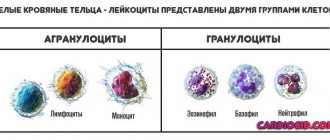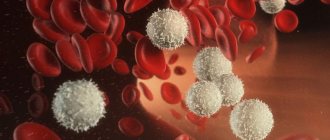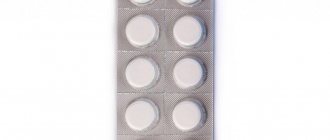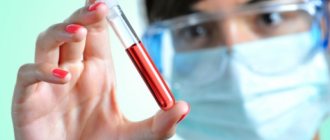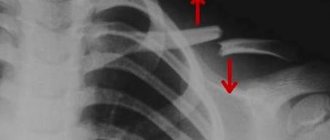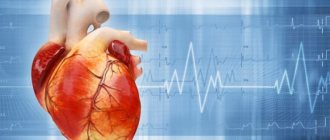Brain
The effect of caffeine on the blood vessels of the brain is specific - when ingested, caffeine leads to their narrowing. Along with the vasoconstrictor effect, caffeine also has other effects:
- accelerates metabolism locally
- stabilizes the functioning of cortical and subcortical structures
- eliminates drowsiness
- increases performance
- improves the flow of nutrients and oxygen to the brain
Heart and coronary arteries
In small doses, caffeine is beneficial for heart health because it:
- normalizes blood circulation and muscle function, which reduces the likelihood of angina, atherosclerosis and heart attack
- increases the speed of movement of the excitation wave with a weakened pulse
- increases resistance to exercise by stabilizing blood flow
- increases the flow of oxygen and nutrients due to the expansion of coronary vessels
Kidneys
Caffeine dilates the blood vessels of the kidneys, has a pronounced diuretic effect, accelerates the evacuation of waste and toxins from the body. At the same time, the alkaloid removes calcium, the deficiency of which negatively affects the health of bones, teeth, and hair. This side effect is not dangerous for people who drink no more than 2 cups of coffee per day and eat properly. After an hour, the effect of caffeine on the kidneys weakens - the blood vessels gradually narrow.
People with kidney pathologies are not recommended to abuse coffee and other caffeine-containing drinks. This reduces the risk of complications and exacerbation of chronic diseases.
Arterial pressure
The dilating effect of caffeine on blood vessels ensures an increase in the vascular lumen, which leads to an increase in blood pressure in both hypertensive and hypotensive patients. Therefore, people with fluctuations in blood pressure are not recommended to abuse caffeine-containing drinks, as the hypertensive crisis increases.
After consumption, caffeine causes an increase in the lower and upper blood pressure by 5-12 mm. Hg Art., and the effect lasts up to 4 hours. And in people who regularly take caffeine in various forms, the increase in blood pressure is insignificant.
Harm to blood vessels
In the absence of severe diseases of the cardiovascular system, caffeine has a beneficial effect on blood vessels and even 2-3 cups of caffeine-containing drinks will not cause harm to health. However, in the presence of diseases of the heart muscle and vascular system, even a small amount of caffeine can provoke pain in the heart muscle, headaches, dizziness, attacks of nausea and panic. Therefore, it is not recommended to drink caffeinated drinks for the following diseases:
- vegetative-vascular dystonia – caffeine enhances the symptoms and provokes the appearance of causeless anxiety and increased anxiety;
- hypertension – coffee causes an increase in blood pressure, which significantly worsens the general condition of the patient and can lead to a hypertensive crisis;
- myocardial damage with pain and heaviness in the area of the heart muscle, which are associated with a deficiency of potassium, calcium, magnesium, which are washed out with excessive consumption of coffee and other caffeinated drinks;
- angina pectoris and tachycardia, in which caffeine increases their symptoms and provokes complications;
- vascular aneurysm - caffeine has a destructive effect on the vascular walls and can provoke hemorrhage;
- glaucoma - an alkaloid aggravates the course of the disease, as it increases intraocular pressure.
Is it possible to drink coffee if you have atherosclerosis?
First you need to understand what atherosclerosis is. This is a condition of blood vessels when atherosclerotic plaques form inside. The main causes of atherosclerosis are the following factors:
- increased blood clotting;
- damage to the walls of blood vessels;
- increase in lipoproteins in the blood.
Atherosclerosis can affect any organ, and this poses a serious danger to human life. In case of vascular atherosclerosis, doctors prescribe the patient a special diet that excludes the consumption of caffeine-containing drinks.
But there are small concessions. For example, people with grade 1 and 2 cerebral atherosclerosis, provided that their blood pressure is normal, are allowed to drink 1-2 cups of instant coffee with added milk per day. At the same time, you need to monitor your well-being: if it worsens after drinking the drink, it should be excluded from the diet.
Can pregnant women drink coffee?
Expectant mothers are sensitive to their health, because during the gestation period they are responsible not only for their body, but also for the development of the unborn baby. Pregnant women exclude many foods from their diet, and coffee is often included in the list of prohibited drinks. But it’s so difficult to give up your favorite latte or espresso, because a cup of aromatic coffee is a real ritual that women quickly get used to. And if the expectant mother suffers from hypotension, feels weak in the morning, and has decreased performance, coffee seems to be the only salvation.
Doctors warn that drinking coffee during pregnancy can cause serious harm to the health of mother and baby. By the way, if you abuse the amount of coffee consumed during the planning period, this can lead to problems with conception. Caffeine also increases the tone of the uterus, which is the cause of early pregnancy termination. But don't worry, because this can only happen if the expectant mother consumes too much caffeine. A pregnant woman can afford a cup of aromatic drink, but it is advisable to add milk and drink coffee during the second breakfast.
Berries
For consumption, fresh berries are used, dried or frozen. To combat diseases of the arteries and veins, medicinal teas and preparations are made based on extracts from berries.
- Cranberry. Has an amazing vitamin and mineral composition. It has anti-inflammatory and antioxidant activity, regulates cholesterol levels, and thins the blood. Cranberries help strengthen the walls of arteries and veins, and the muscles of the heart. If you have serious stomach or liver problems, use with caution.
- Kalina. Able to reduce blood pressure and strengthen the heart. For preventive and therapeutic purposes, the color, bark and berries with seeds are used. If you are prone to hypotension or thrombosis, take with caution.
- Rowan. Strengthens blood vessels, reduces blood pressure. Medicines and tinctures are taken during the rehabilitation period after a heart attack. If you are prone to low blood pressure and thrombosis, use with caution.
Composition and action
The main component in the composition is caffeine. The component has the peculiarity of having a psychostimulating effect on parts of the nervous system.
The effect of aromatic potion on the body
It has been proven that coffee, if consumed in moderation by people without contraindications, has a positive effect:
- increases mental activity;
- improves a person’s mood;
- enhances performance;
- reduces irritability.
A similar effect is achieved not only thanks to caffeine, but also other necessary components:
- carbohydrates;
- fats;
- oils;
- potassium;
- manganese;
- iron;
- magnesium.
Fact! Caffeine belongs to the methixanthine group of alkaloids. Such substances can have a doping effect, significantly reducing the human body’s need for rest, while increasing its performance. The action is achieved through psychostimulation of the cerebral cortex.
Roasted grains.
As a result of an overdose, the opposite effect appears - the process of transmission of nerve impulses by cells is slowed down. The photo shows high-quality coffee beans from which you can prepare a drink that will benefit the cerebral vessels. After consuming acceptable doses, the breathing process becomes more frequent and the functional activity of the heart and blood vessels changes.
Coffee has an effect on all organs and systems of the body:
- respiratory;
- digestive;
- endocrine;
- metabolic process;
- heartbeat;
- vascular tone.
The active component is present not only in the grains, but also in the leaves. That is why the effect of caffeine on cerebral vessels should be examined in detail. Read the article to the end to find out whether coffee dilates or constricts blood vessels in the brain.
Benefit or harm?
Daily dose
In order for the effect of coffee on the blood vessels of the brain to be only positive, it is important to follow the rules for its use. There is definitely an acceptable daily dose that provides benefit.
Do not exceed permissible limits
Excessive consumption of caffeine-containing products will be harmful and cause the following disorders:
- exhaustion of the nervous system;
- disturbances in the functioning of the cardiovascular system;
- heart rhythm disturbances;
- decreased brain activity;
- intoxication.
Proven! The lethal dose of caffeine is 10 grams per day. Depending on the strength - more than 10 liters of drink. Based on this information, it should be concluded that death from overdose is rare. It is simply impossible to drink such a volume; first of all, the body’s protective reaction – the gag reflex – will work.
The daily intake of caffeine is no more than 600 mg. This volume should be divided into several doses. It is permissible to consume no more than 6 mugs with a volume of 150 ml per day.
However, it should be remembered that such a dose affects the functioning of the heart, therefore, in case of tachycardia and other pathologies, the volume must be significantly reduced. Instructions for use must be followed by everyone; excessive consumption of caffeine does not benefit even a healthy body.
The consumer's attention should be focused on the fact that benefits can only be obtained from a natural product. Its price is certainly higher, but only such a composition can be beneficial. Granulated or freeze-dried coffee goes through many stages of processing, including exposure to extremely low temperatures, during which it loses its original properties.
The beneficial properties are lost during the preparation of granules.
Coffee can dilate the blood vessels of the heart muscle if its concentration exceeds 50 mg; if consumed in smaller doses, the effect will be unnoticeable. Long-term use of the drink can cause addiction.
Coffee and oncology
There is a myth that coffee causes cancer. However, the World Health Organization's International Agency for Research on Cancer notes that there is no substantiated evidence for this claim. Although coffee does contain a carcinogen - acrylamide. However, the same substance is found in potatoes, potato chips, hot toast, and even breakfast cereals.
Researchers note that very hot drinks may be carcinogenic. As a rule, these are those whose temperature exceeds 65 degrees. The fact is that when they get inside a person, they are able to destroy the cells of the esophagus and act as a catalyst for tumors. However, this is just data from one of the studies and food for thought for lovers of very hot coffee. Traditionally, coffee is served at a temperature of 60-75 degrees. If the drink burns your lips, it would be advisable to cool it slightly.
Despite this, in the spring of 2021, a California court ordered American coffee producers to label their coffee containing carcinogens. Even the well-known company “Starbucks” could not prove to the court that the substance formed during coffee roasting does not increase the risk of developing cancer.
Although the result of one study, which involved scientists from Italy, Great Britain and the USA, on the contrary, proved that moderate coffee consumption is associated with a reduced risk of breast, colon, endometrial and prostate cancer. Also, thanks to its use, there is a possibility of reducing the risk of developing Parkinson's disease and type 2 diabetes. Moreover, scientists have concluded that coffee can even be part of the diet.
Tonic effect
The effect of caffeine on the functions of the central nervous system (CNS) is proportional to its individual characteristics: a weak organism requires a small dose, a strong one requires large volumes.
The substance stimulates the activity of the central nervous system:
1. Strengthening and concentrating the processes of excitation of the cerebral cortex. 2. Weakening conditioned inhibition. 3. Improving reflex activity. 4. Stimulating the activity of the spinal cord due to facilitating the flow of impulses along the nerve fibers. 5. Reducing reaction time.
Caffeine can affect nervous activity:
Application for weight loss
Consuming caffeine wisely helps you lose weight. For the best effect, it is recommended to combine drinking coffee or an energy drink with fitness classes.
Weight loss occurs due to:
Caffeine and sports
When consuming caffeine no more than 16 mg/kg, muscle activity increases, but larger doses reduce it.
Small amounts of caffeine improve the performance of competitive athletes:
This is explained by the substance’s ability to break down glycogen and fats into glucose (the main source of energy for muscles), promote the production of adrenaline, and accelerate the utilization of oxygen by tissues, stimulating metabolism.
Daily intake
It is more correct to indicate the daily intake not of coffee, but of the caffeine it contains. How much is there in a regular cup of hot drink?
You can focus on the following numbers:
- soluble - from 60 to 100 milligrams (at the rate of 2 teaspoons of granules);
- espresso – from 80 to 130 milligrams;
- cappuccino (lattes and other similar drinks) – from 40 to 70 milligrams;
- natural boiled (in the traditional way in Turk) - from 110 to 170 milligrams.
The optimal daily intake is up to 200 milligrams of caffeine , that is, 2 regular cups of coffee. The permissible maximum is 400 milligrams.
If it is more, it will harm the heart, as there will be an excessive load on it. For children under 14 years of age, coffee drinks in any form are generally not recommended (this also applies to pharmacological preparations that contain caffeine).
In theory, if you follow these recommendations, there will be no negative consequences from drinking coffee. This has been confirmed by many years of research (when scientists wanted to find out whether the life expectancy of those who prefer tea and those who drink only coffee changes).


